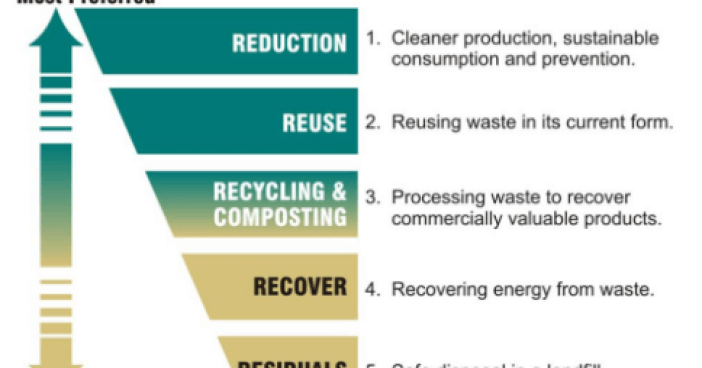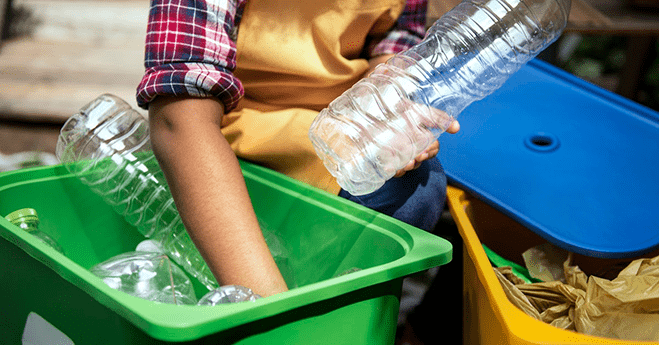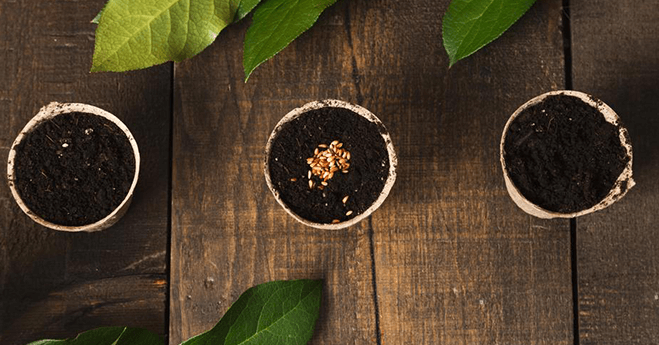As you were eating breakfast this morning you probably didn’t think twice about where the leftovers (waste) would go once you finished. Many people don’t. Next time, take a moment and think before you throw a banana peel or empty coffee container into the dumpster. After all, much of the waste that ends up in landfills can be diverted through waste management, waste reduction, recycling and composting.
Every year, Americans generate over 254 million tons of trash, with 66% of the waste tossed into landfills and incinerators. Over 80% of the materials making up total municipal solid waste (MSW), including paper, glass, metals, plastics, yard trimmings, and food, can be recycled or composted, but less than half (34.3%) is actually being diverted from landfills. Although efforts to recycle and compost have increased over the past few decades, the amount of MSW generated continues to increase at a faster rate. It is time to cut down on MSW, and develop an effective plan for Integrated Solid Waste Management (ISWM).
Figure 2 shows a standard hierarchy for an effective waste management plan. The first step in a standard hierarchy for an effective waste management plan is source reduction or waste minimization, whether this is from the production or consumption stages. For a large company, minimizing waste may include tracing back to the source within that company’s supply chain. If more waste is reduced at the source, then less processing is needed further downstream. This is the most preferred step in the integrated waste management hierarchy.
The next step is to reuse. Reuse is different from recycle because the waste is reused in its current form, rather than being repurposed as recycled material. There are several benefits of reuse which have a positive impact on the environment, community and economy. Reuse eliminates the need for waste collection, transport, and/or recycling, which makes it an ideal option for managing waste by the individual who generates the waste.
Recycling and compost allow for the recovery of commercially valuable materials through processing waste. Recycling can be as simple as sorting recyclable items and discarding them in a separate container. In many areas, curbside recycling services are available to residents, in which sorted recyclables are collected, processed and repurposed at a local waste management facility. Composting fruits, vegetables, trimmings and foodservice items can be done at designated facilities or you can compost at home. In addition to the benefit of minimizing landfill waste, composting also improves soil quality and reduces the need for chemical fertilizers. Both of these waste management methods are great alternatives to modern landfills.
If waste cannot be reduced, reused, recycled or composted, the next step in waste management is to recover energy from waste through thermal and non-thermal treatments, including incineration and fermentation. Some waste-to-energy treatments are highly debated, as to whether they possess sufficient benefits for their level of social, economic and environmental impacts. Despite these impacts, waste-to-energy treatments divert waste from landfills with far greater anticipated environmental impacts, leading to the release of harmful greenhouse gases (GHGs).
The final (and least preferred) level of the integrated waste management hierarchy is the safe disposal of residual waste in landfills. Landfills receive negative attention from the public due to their impact on communities. However, it is important to note that advances in modern landfills have come a long way since traditional open dumps. Modern landfill technology focuses on minimizing environmental impacts on ground water and air quality, including methane gas collection. In the future, landfills can be further improved to make them safer for residual waste disposal.
There isn’t a single solution to waste management, but using an integrated system can help divert waste from landfills and dispose of waste using the most effective method for the waste material. Consequently, having an integrated waste management system in place (rather than dumping all trash in the same place) will help reduce environmental impacts, as well as create something good (e.g., energy, repurposed products, soil fertilizer, etc.) from waste that has reached the end of its product lifecycle.
FirstCarbon Solutions (FCS) is a leading provider of environmental and sustainability solutions, offering fully integrated consulting, software and data management services. With expertise in LCA and Supply Chain Services, we develop cost-effective solutions to help businesses integrate sustainability in their daily operations.




